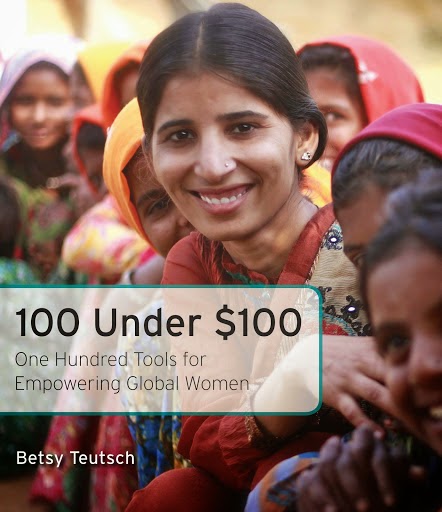 First off, another hat-tip to M.P. Dunleavey, whose biweekly Saturday NYTimes column Basic Instincts so often nails issues I care about deeply. [She has published a book, Money Does Buy Happiness, which I just purchased and am psyched to read and report on later. Full disclosure though: I bought it used. I rarely buy a new book; I like buying used books as an environmental practice.]
First off, another hat-tip to M.P. Dunleavey, whose biweekly Saturday NYTimes column Basic Instincts so often nails issues I care about deeply. [She has published a book, Money Does Buy Happiness, which I just purchased and am psyched to read and report on later. Full disclosure though: I bought it used. I rarely buy a new book; I like buying used books as an environmental practice.]
In this Saturday's column, she writes about the mental glee in anticipating a possible 30K windfall, going through the psychological gymnastics of how she and her husband would allocate the funds. (My husband and I treated the appreciation of our NYC apartment as a windfall, since we used it to leave New York and set up life in a much lower cost-of-living city, Philadelphia. Great decision!) She concludes that no windfall will ever match human greed, so it is necessary to get one's head together to make wise decisions. This is no different than approaching decision making for incremental income, of course.
Through her financial journalism beat she has contacts who emulate the kind of life I admire: very wealthy people who live intentionally, committed to a larger purpose than buying the biggest X and the most luxurious Y. When I read how nouveau riches tycoons spend their hedge fund gains, it really sounds like junior high school status displays. But listen to Brewster Kahle's story, as told by Dunleavey:
I reflected on a conversation I had last month with Brewster Kahle, an entrepreneur who became rich during the dot-com boom when he sold two companies for millions to AOL and Amazon.com. Despite his wealth, he has continued to work on a project that has absorbed him for nearly 25 years: “The dream was to build the library at Alexandria, Version 2,” said Mr. Kahle, co-founder of the Internet Archive, a nonprofit digital library based in San Francisco.
While Mr. Kahle’s vision is inspiring, his lifestyle intrigued me more. Although he and his family can afford to live like millionaires, they generally choose not to. They still rent the house in San Francisco where they have lived for years (“If you rent, somebody else fixes the place,” he notes). He drives a 10-year-old car. That’s not because Mr. Kahle and his wife are cheap. “I grew up around rich people,” he said, “and the happiest people I’ve known are those in the middle-middle class — people who are neither struggling nor floating in money. They have the most options.”
YES, the Kahles’ wealth has bought them a level of security and flexibility that most mortals cannot imagine. But I got the feeling that regardless of his net worth, Mr. Kahle would still focus his time and energy on a few things: spending time with his family, working on intellectual copyright issues, traveling to enjoyable places whenever possible. “We’ve tried to avoid the expensive things, like second homes and divorces,” he joked.
Seems like the Kahles have read the literature on what makes people happy: meaningful work, friends, close family, and community (hard to come by when you live in a mansion surrounded by a moat and jet off to your other 3 or 4 homes). (Spiritual connection is also on the list, but was not addressed in this interview.) One of the most intriguing lessons I've learned in adult life was from Thomas Stanley in his classic study of wealthy people's habits, The Millionaire Next Door. Just because you have it, you don't need to spend it, though when you do, more power to you. There are other ways of using money which can yield more personal value - and other sorts of investments which can bring more happiness than a toy collection.


No comments:
Post a Comment